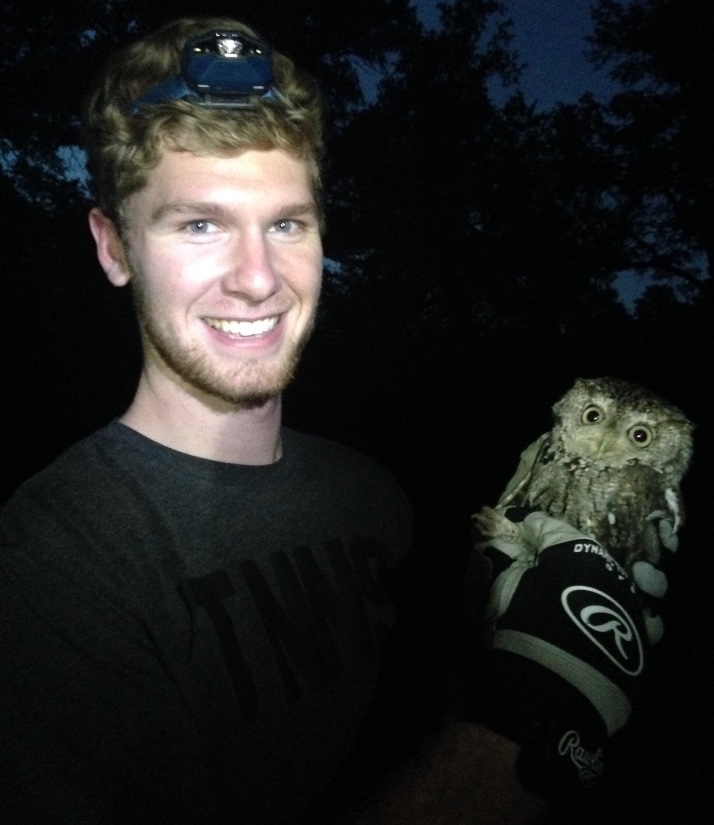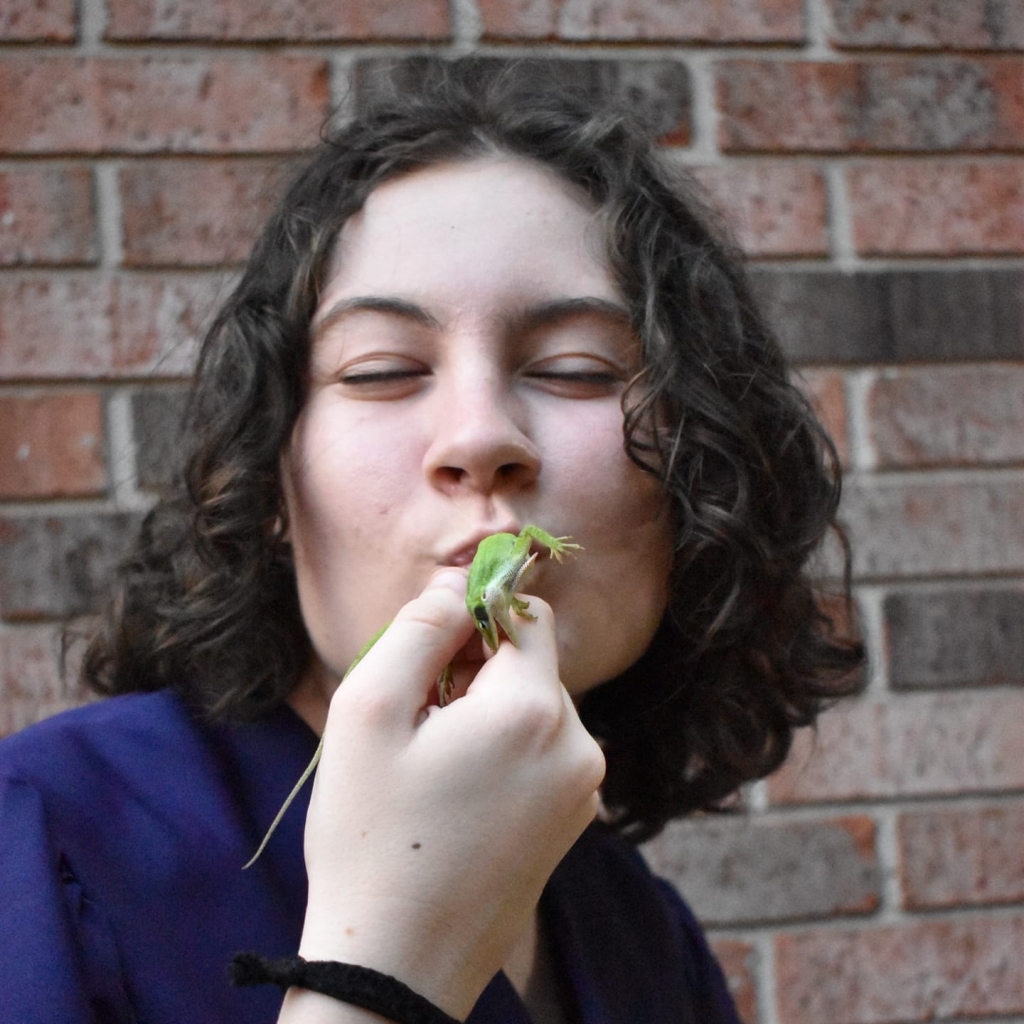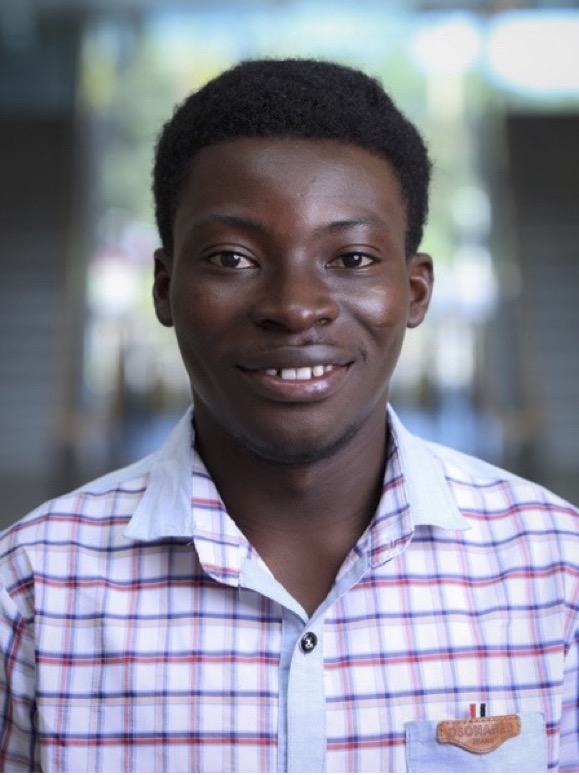Darin R. Rokyta, Ph.D.

Dr. Rokyta received a B.S. in Zoology from the University of Texas at Austin in 1999 and a Ph.D. in Bioinformatics and Computational Biology from the University of Idaho in 2006 working with Dr. Holly Wichman. He was a postdoctoral researcher at the University of Idaho working with Drs. Paul Joyce and Holly Wichman from 2006 until he joined the faculty at Florida State University in 2008. His research program is designed to characterize the genetic and molecular bases for adaptation and to determine how selection contributes to inter- and intraspecific biodiversity. He uses laboratory selection experiments (i.e., experimental evolution) with viruses that infect bacteria (i.e., bacteriophages) to test predictions from adaptation theory and the extent to which interactions between proteins or conflicting selective pressures on proteins limit adaptive evolution. He also uses this system to characterize the specific biophysical mechanisms used during protein adaptation. In addition, Dr. Rokyta studies venom composition and evolution in snakes, centipedes, scorpions, and spiders to determine how selection on an ecologically critical trait such as venom affects patterns of phenotypic and genetic variation within species and divergence among species. More recently, his research interests have expanded to the study of the genetics of resistance to venoms. Email Dr. Rokyta.
Current Lab Members
Graduate Students
Kylie C. Lawrence

Kylie joined the Rokyta Lab in August 2018 and is in the Ecology and Evolution M.S. Program at Florida State University. Before joining the lab, Kylie earned a B.S. in Biology and a B.A. in Chemistry at the University of North Carolina at Chapel Hill in 2018. Kylie’s research is primarily bioinformatic, and she is studying the sequence and expression variation of venom genes in the Florida Cottonmouth (Agkistrodon piscivorus). She is using epigenetic techniques to uncover the molecular and genetic basis for expression differences among populations as well as among paralogs within tandem duplicate arrays of venom genes. In addition to her primary degree program, she has simultaneously earned an M.S. in STEM Teaching from Florida State University. Email Kylie.
Gunnar S. Nystrom

Gunnar joined the Rokyta lab in August 2017 and is in the Ecology and Evolution Ph.D. program at Florida State University. Gunnar received a B.S. in Biology and B.B.A in Entrepreneurial Management at Texas Christian University, where he performed research as an undergraduate in Dr. Marlo Jeffries toxicology lab studying the effects of environmental contaminants on the physiological processes of fish. He also worked under the supervision of Dr. Victoria Bennett and Dr. Amanda Hale studying the effects of wind turbines on bat activity. At Florida State University, Gunnar has focused on the evolution of scorpion venoms, including characterizing patterns of molecular evolution among venom genes for the genus Hadrurus and studying the genomic and epigenomic basis for sex differences in the Hentz Striped Scorpion (Centruroides hentzi). Email Gunnar.
Emilie M. Broussard

Emilie joined the Rokyta Lab in August 2020 and is in the Ecology and Evolution Ph.D. program at Florida State University. Emilie earned a B.S. in Biology at Louisiana State University, where she conducted research in the Austin Lab in the Museum of Natural Science studying the evolution of the albumin protein family in reptiles. During her undergraduate years she also completed an independent research internship in the Zhao Lab at Wuhan University investigating enzyme evolution in vertebrates. Since joining the lab, Emilie has become interested in the coevolution of complex traits. She uses the system of venom and venom resistance to study how the strength of selection affects the genetic architecture underlying coevolving traits by using a model prey system. Emilie is also the current outreach coordinator for the E&E graduate student group (EERDG). Email Emilie.
Francis U. Ebuara

Francis joined the Rokyta Lab in February 2023 and is in the Cellular and Molecular Biology Ph.D. program at Florida State University. Prior to this, he completed his undergraduate studies at Federal University Wukari, majoring in Microbiology, and then earned an M.S. in Medical Microbiology at the University of Lagos both in Nigeria. He previously conducted research on the prevalence of malaria and typhoid fever co-infection in Wukari and performed a molecular surveillance study of adenovirus in environmental water samples in Lagos. After enrolling at Florida State University in fall 2022, Francis became intrigued by the possibility working with one of his favorite groups of animals (snakes), and so it was an easy choice for him to join the Rokyta Lab following his rotation in the Spring of 2023. His current research interest centers on the molecular basis of venom evolution, particularly exploring the roles of transposable elements in venom gene expression and regulation in snakes. Using a blend of computational methods and molecular biology techniques (e.g., transcriptomics, epigenomics, and 3D genomics), Francis aims to better understand the impact of mobile genetic elements in venom gene evolution. Email Francis.
Collins Awiaga

Collins joined the Rokyta Lab in August 2023 and is in the Ecology and Evolution Ph.D. program at Florida State University. Before joining the lab, Collins earned a B.Sc. in Biochemistry from the University for Development Studies and an M.Phil. in Biochemistry from the University of Ghana. While a graduate student at the University of Ghana, Collins researched on the identification of Bitis arietans (puff adder) venom variants and the development of small molecules with broad venom detoxifying activities. Following his master’s training, he received a visiting fellowship position at Iowa State University, where he worked on the generation and culture of gene-edited snake venom gland organoids. At Florida State University, Collins has directed his efforts towards exploring the application of organoid technology as a tool for studying snakebite envenomation. His research aims to accelerate antivenom research and development. Email Collins.
Erica Atkins

Erica joined the Rokyta Lab in August 2023 and is in the Ecology and Evolution Ph.D. program at Florida State University. Erica received a B.S. in Wildlife Biology and M.Sc. in Marine Biology from Texas A&M University. Her thesis research identified sex-biased dispersal after characterizing the spatial patterns of genetic variation of Bull Sharks in the Gulf of Mexico, Caribbean, and Northwestern Atlantic Ocean. Her dissertation research is primarily bioinformatic, examining the spatial patterns divergence and selection in venom genes of Pygmy Rattlesnakes (Sistrutus miliarius) and investigating the epigenomics of phenotypic divergence within a complex trait like venom expression. Email Erica.
Undergraduate Researchers
Shakthi Rajesh

Shakthi joined the lab in the Fall of 2022 as a Directed Independent Study student. In addition to employing his supreme invertebrate collecting skills, Shakthi is currently studying sex differences in the venom of the Florida Bark Scorpion (Centruroides gracilis) and characterizing the diets of the Hentz Striped Scorprion (Centruroides henzti) and the wolf spider Hogna lenta using a metabarcoding approach. He is also responsible for assisting with the maintenance of our animal collections.
Shelby Edwardson
Shelby joined the Rokyta Lab in 2023 as a Directed Independent Study student. In addition to the maintenance of both our snake and invertebrate animal collections, she also assists various members of the lab with venom collection and lab work. Her research primarily focuses on venom proteomics of the Green Lynx Spider (Peucetia viridans), while also venturing into the world of bioinformatics by assisting Kylie with her analysis of gene expression in Cottonmouth Snakes.
Briana Gomez
Briana joined the Rokyta Lab in 2022 as a Directed Independent Study student. Briana is responsible for maintaining our invertebrate animal collection and upkeep of the lab’s Drosophila populations. In addition to her regular tasks around the lab, she also assists in venom collection and lab work. She is currently working on a collaborative project investigating population differences in the venom of the Striped Bark Scorpion (Centruroides vittatus).
Rebecca Pereira
Rebecca joined the Rokyta Lab in 2023 as a Directed Independent Study student. Rebecca is responsible for maintaining our invertebrate animal collection and upkeep of the lab’s Drosophila population. In addition to her regular tasks around the lab, she also assists in venom collection and lab work. Rebecca is currently working on a collaborative project investigating population differences in the venom of the Striped Bark Scorpion (Centruroides vittatus).
Ana Sanchez
Ana joined the Rokyta Lab in 2023 as a Directed Independent Study student. Ana is responsible for maintaining our invertebrate animal collection and upkeep of the lab’s Drosophila population. In addition to her regular tasks around the lab, she also assists in venom collection and lab work. Ana is currently working on a collaborative project investigating population differences in the venom of the Striped Bark Scorpion (Centruroides vittatus).
Former Lab Members
Former Postdoctoral Scholars
Matthew L. Holding, Ph.D.
Dr. Holding was an NSF Postdoctoral Research Fellow in the Rokyta Lab from 2018 through 2020 and is interested in the evolution of traits mediating interactions between predators and their prey. In the Rokyta Lab, he focused on patterns of venom evolution across the phylogenetic tree of New World pitviper snakes, as well as the co-adaptation of venom composition and the morphology of the venom delivery system in rattlesnakes. He used transcriptomic, proteomic, and functional data on venoms, modern phylogenetic methods, and CT-scanning of snake skulls to accomplish these investigations. Dr. Holding is currently a postdoctoral fellow at the University of Michigan.
A. Carl Whittington, Ph.D.
Dr. Whittington joined the Rokyta lab in December 2015 to work on bacteriophage experimental evolution and left the lab in 2018. He is a protein biochemist and broadly interested in protein evolution, biochemistry, and biophysics. In the Rokyta Lab, Dr. Whittington used bacteriophages to study the biophysical mechanisms underlying adaptation and the molecular bases for pleiotropy and epistasis. He is currently the Director of the Analytical Lab in the Department of Biological Science at Florida State University.
Kenneth P. Wray, Ph.D.
Dr. Wray completed his Ph.D. at Florida State University with Dr. Scott Steppan in 2013 and the joined the Rokyta Lab as a postdoctoral scholar working on snake-venom evolution. He left the lab in August 2015 and is currently the Managing Director of the Texas Field Station Network for the University of Texas at Austin.
Lindsey Willett-McGee, Ph.D.
Dr. McGee was a postdoctoral scholar in the Rokyta Lab from 2013 though 2015 studying the experimental evolution of biophysical traits of bacteriophage under strong selection. She is currently an Associate Professor at Earlham College.
Former Graduate Students
Schyler A. Ellsworth, Ph.D.
Schyler joined the Rokyta Lab in 2017 and earned his Ph.D. in Ecology and Evolution at Florida State University in December 2023. His dissertation research focused on the evolution of venoms of scolopendromorph centipedes and the genetics of venom resistance. In particular, he characterized differences in resistance genetics between male and female prey. He is currently a postdoctoral researcher at the University of North Carolina at Chapel Hill.
Michael P. Hogan, Ph.D.
Mike joined the Rokyta Lab in August 2016 and earned his Ph.D. in Ecology and Evolution Ph.D. at Florida State University in May 2023. For his dissertation research, Mike studied the genomics, expression, and evolution of sensory genes in the Eastern Diamondback Rattlesnake (Crotalus adamanteus) as well as the epigenetic basis for ontogeny-related venom-composition changes in this same species. Mike is currently a postdoctoral researcher at the University of Michigan.
Micaiah J. Ward, Ph.D.
Micaiah joined the Rokyta Lab in 2014 and earned her Ph.D. in Cellular and Molecular Biology at Florida State University in May 2020. Micaiah’s dissertation research focused on the composition and evolution of diverse invertebrate venoms and the evolution of venom resistance using experimental evolution in fruit flies (Drosophila melanogaster). Micaiah is currently a Field Metabolomics Scientist at Metabolon.
Mark J. Margres, Ph.D.
Mark joined the Rokyta Lab in 2011 and earned a Ph.D. in Ecology and Evolution at Florida State University in December 2016. Mark’s dissertation project focused on the genetic basis of adaptation in island populations of Eastern Diamondback Rattlesnakes (Crotalus adamanteus), particularly whether expression differentiation or substitutions within coding-regions were the primary mechanism underlying adaptive phenotypic divergence over relatively short timescales. He is currently an Assistant Professor at the University of South Florida.
Victoria Pearson, Ph.D.
Victoria joined the Rokyta Lab in 2010 and earned a Ph.D. in Cellular and Molecular Biology at Florida State University in November 2017. For her thesis project, she studied viral population genetics and biodiversity in local wastewater treatment plants by means of culture-independent high-throughput sequencing. She investigated the structure of genetic diversity for viruses with ssDNA genomes, particularly those in the families Circoviridae, Geminiviridae, and Microviridae. Victoria is currently a Senior Analyst at Astellas Gene Therapies.
Andrew Sackman, Ph.D.
Andrew joined the Rokyta Lab in 2010 and earned a Ph.D. in Ecology and Evolution at Florida State University in April 2017. Andrew’s dissertation project focused on bacteriophage experimental evolution and whether complex selective pressures (i.e., simultaneous selection on multiple phenotypes) impede adaptation. His other projects included measuring epistatic interactions among beneficial mutation and determining the prevalence of parallel evolution across genotype adapting to the same selective conditions. Andrew is currently a Visiting Assistant Professor in the Department of Biology at Washington and Lee University.
Karalyn Aronow, M.S.
Karalyn completed an honor’s thesis in the Rokyta Lab in 2010 as an undergraduate researcher, then completed her M.S. in Ecology and Evolution from 2013 through 2014. Her thesis was titled “Snake venom composition, adaptation, and evolution: comparative transcriptomic and proteomic analyses of venoms from the Cottonmouth (Agkistrodon piscivorus) and the Copperhead (Agkistrodon contortrix).”